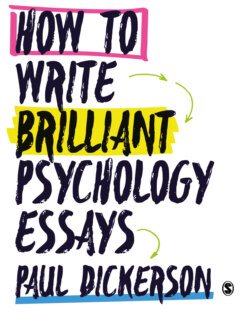Читать книгу How to Write Brilliant Psychology Essays - Paul Dickerson - Страница 51
На сайте Литреса книга снята с продажи.
Chapter 2 Make it yours – how to use sources effectively and avoid the plagiarism trap
ОглавлениеThere is a famous quote which appears to praise ‘stealing’ the work of others. One form of it goes like this: ‘Good writers borrow, great writers steal.’ You might instantly think that Pablo Picasso said this, or TS Eliot, or maybe Oscar Wilde. If you attribute the phrase to any one of them, you are right. They all said it – or something very similar – and several others did too, so it’s not entirely clear who ‘stole’ from whom. We could leave to one side what this quote is trying to express – perhaps something about the dangers of trying to sneakily imitate others – and dig a little deeper. Is it still theft – or, for our purposes, plagiarism – if Picasso inserts the word ‘artists’, Eliot ‘poets’ and Wilde ‘writers’? Many students use exactly this technique of word substitution, or versions of it, to try to evade plagiarism detection or in a genuine effort to make the copied passage ‘their own’.
This chapter will tackle plagiarism head on – not to simply wag a metaphorical finger at you and tell you what you really mustn’t do, but by examining all of the key features involved in making your essay your own. Here you will find not only tips on avoiding plagiarism, but also how you can readily become a proactive researcher in locating sources for your essay, how you can create notes that genuinely empower your essay writing and how you can use those sources to make your essay sparkle. This chapter will support your natural curiosity to find out more about psychology and your sense of satisfaction in doing something well – creating something really worthwhile. Your sense of curiosity and creativity is what really matters, so don’t let stress, anxiety and time pressure blow you off course.
In this chapter you will learn…
What is plagiarism and why it matters
The active-engagement approach to locating and utilising sources
How to search effectively for information
Dynamic note-taking
How to really make it your own
